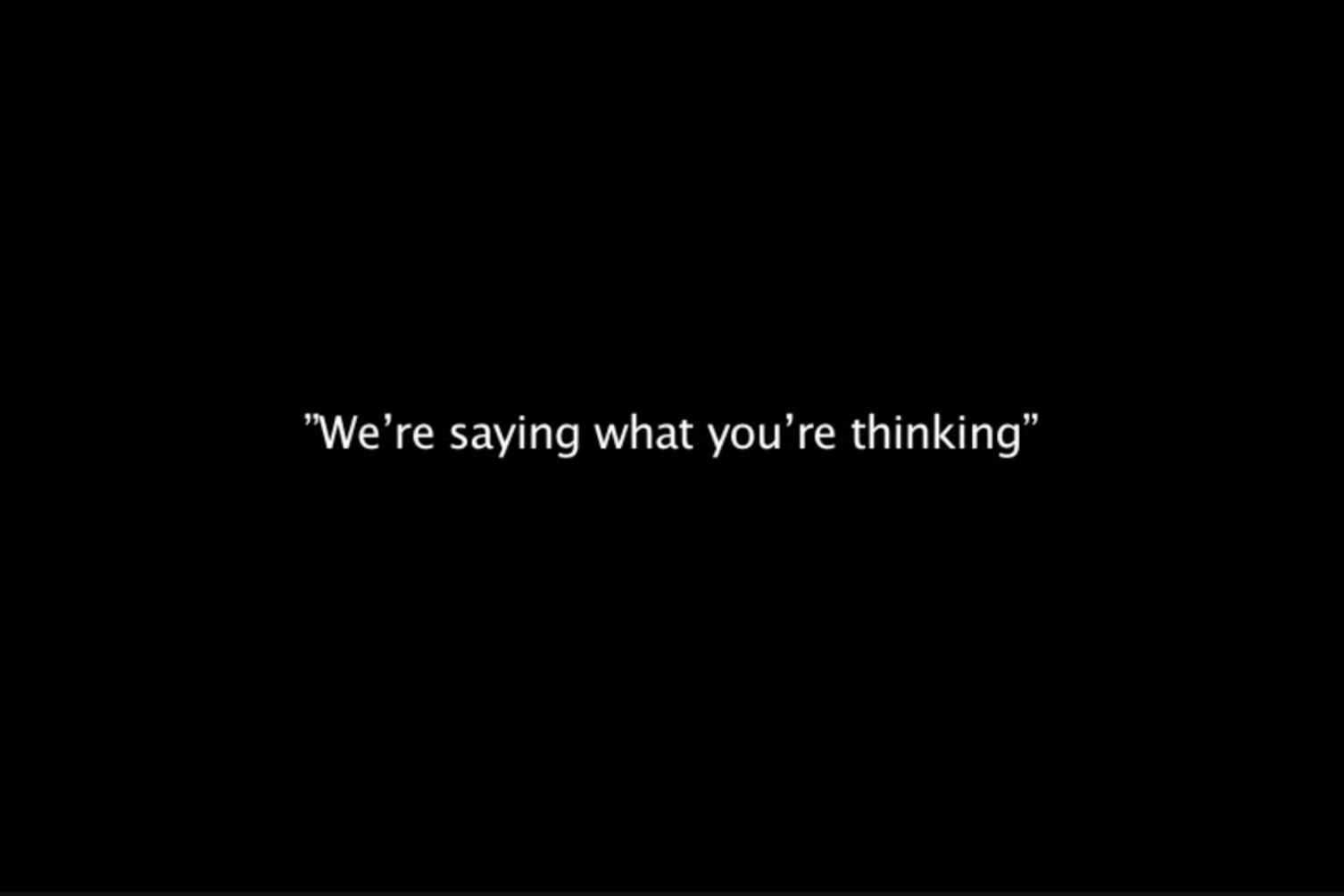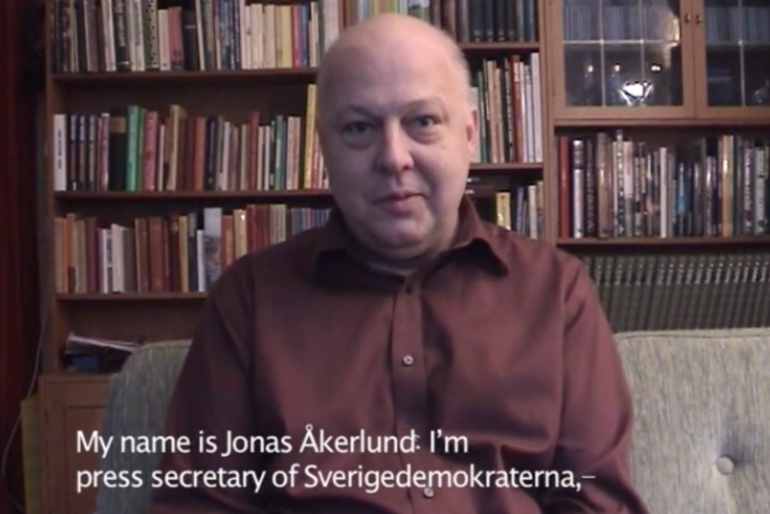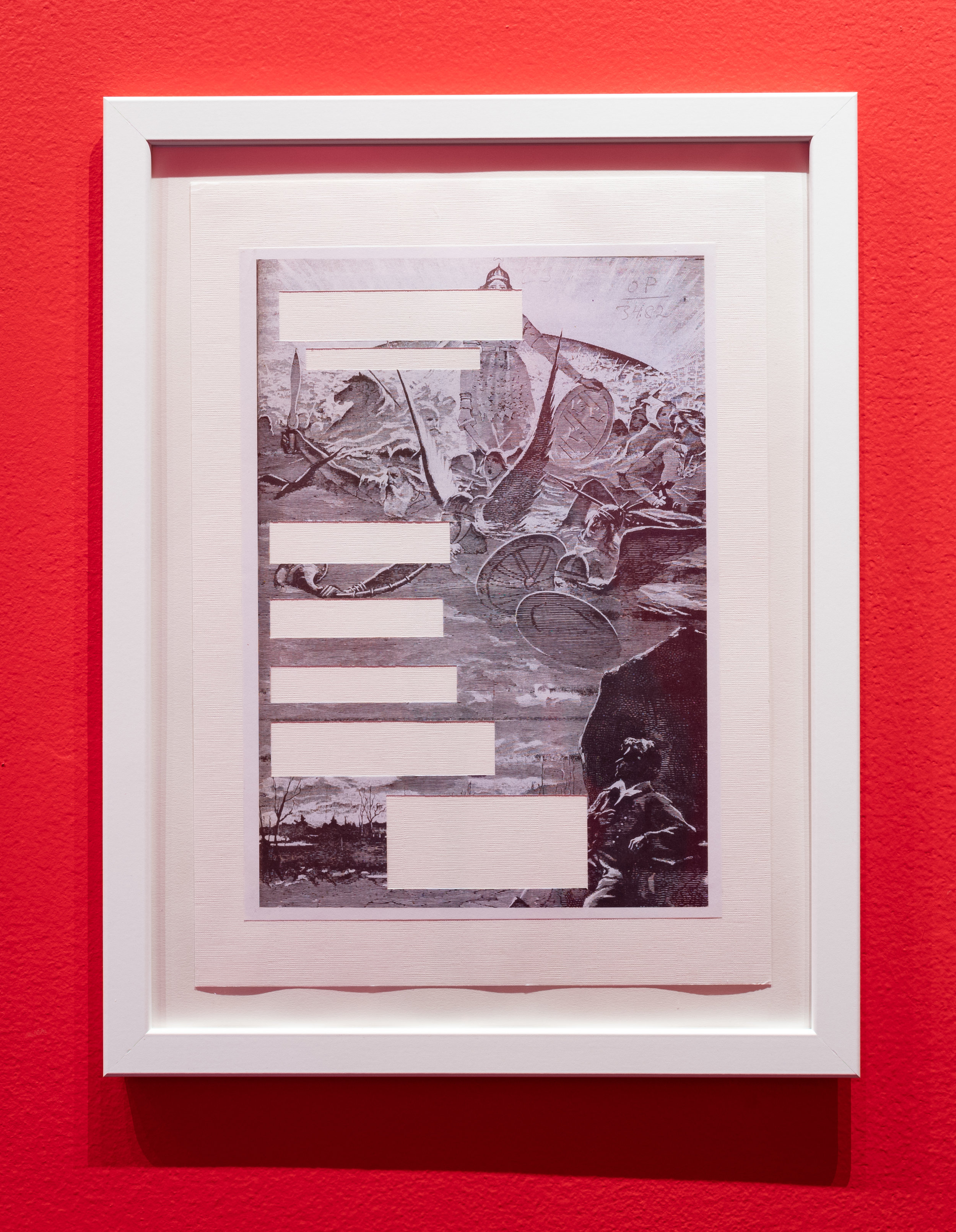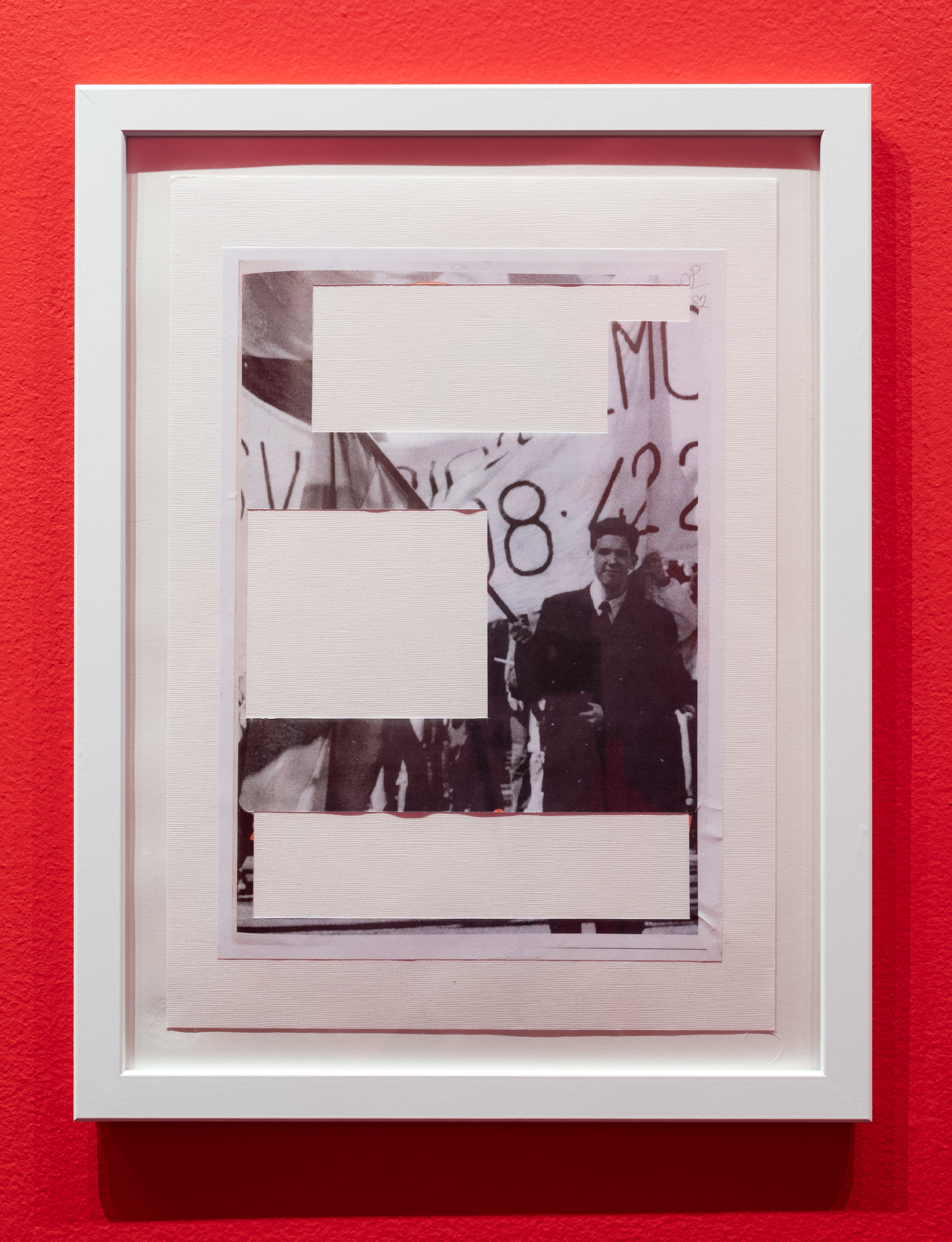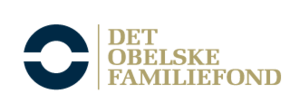Introduction /
We’re saying what you’re thinking is a solo exhibition by acclaimed Swedish artist Johan Tirén, which takes a critical look at the rise of anti-immigration, racist, far-right parties in European politics.
For more than two decades, Tirén has examined questions of history writing and ideology in his artistic practice, with a specific focus on the conditions of xenophobia and racism.
The exhibition undertakes a critical survey of the nationalist, right-wing populist, anti-immigration Swedish party, Sverigedemokraterna (Sweden Democrats), which has grown to become the third largest party in Sweden.
In a video installation from 2005 and two new works created for the CAMP exhibit, Tirén maps the party’s roots in the racist movement Bevar Sverige Svenskt (Keep Sweden Swedish) and punctures the party’s vision of a monocultural society and its realization.
The exhibit invites audiences to reflect on how far-right groups have managed to enter parliaments across Europe, and how we can confront their politics.
> Download exhibition catalog
English / dansk
> Reviews
> Download press release
Press contact /
Program director Frederikke Hansen
frederikkehansen@campcph.org
(+45) 60 73 19 15 (cell)
(+45) 72 14 07 66 (main)
Stills from We’re saying what you’re thinking (2005), 3 channel video installation, 180 min.
© Johan Tirén
Installation view of and stills from We’re saying what you’re thinking (2005), 3 channel video installation, 180 min. © Imagebureauet
More about the exhibition /
We’re saying what you’re thinking shows three works that takes us into the anti-immigration and right-wing populist engine room so we can understand its strategies and progress in order to prevent its spread in European democracies.
In the video installation We’re saying what you’re thinking (2005), the artist interviews two of Sverigedemokraterna’s leading figures in the mid-00s – former party secretary Jan Milld and press secretary Jonas Åkerlund – as well as Daniel Poohl, a journalist from the anti-racist foundation Expo, who has written several books on Swedish right-wing extremism.
The interviews are conducted as polite, in-depth conversations where Tirén asks the party members to explain the party’s political program and its realization.But as the interviews progress, discrepancies and inconsistencies in the party’s ideology becomes increasingly apparent.
Key concepts such as ‘nation,’ ‘culture,’ ‘origin,’ and ‘Swedishness’ turn out to be empty notions that can’t be justified. During Daniel Poohl’s interview, it becomes even clearer that the party, which describes itself as Sweden’s true social democracy, has roots in the racist movement Keep Sweden Swedish.
”What I wanted to do was to let two Sverigedemokrater talk about their ideology. I wanted to listen to them formulating their policies and to see whether they really can argue for the policies that they put on their programme.”
– Johan Tirén
Thanks to his specific interviewing form, Tirén succeeds in puncturing the party’s visions of a monocultural society and its realization. A party that had not had its parliamentary breakthrough when the work was created. Today it is Sweden’s third-largest party and Sweden is just one of many European countries, where right-wing extremist parties have managed to establish a parliamentary platform and change the entire political and social landscape with their xenophobic and anti-feminist messages directed at Muslims, LGBTQ persons, and the established parties.
The video installation’s title, also the same as the exhibition, was taken from Sverigedemokraterna’s party manifesto. Variations of the phrase “We’re saying what you’re thinking” are used frequently by right-wing populist politicians who claim to speak on behalf of ‘ordinary folks’ against the establishment. It is this alleged rift between the people and the elite that is the core of populism (see Anna-Lena Lodenius, We’re saying what you’re thinking: högerpopulismen i Europa, Stockholm: Atlas, 2015).
And we looked the other way (2019). 14 x collages, framed. Each 30 x 40 cm. © Imagebureauet
The specific causes of the rapid rise of right-wing populism throughout the West are the starting point for the two new works that Tirén created for the exhibition. In the collage series And we looked the other way (2019), the artist scanned fourteen front pages of Sverigedemokraterna’s member magazine, SD-Kuriren, from the period 1988–2016. In that time, the magazine evolved from being a photocopied fanzine, with an anti-communist and anti-Semitic focus, to a glossy magazine with reports of crimes committed by immigrants, caricatures of the Prophet Muhammad, and more.
In the series, however, Tirén has removed all the text columns and text boxes. What remains is a structure with empty fields that question what history we are presented with, and what we choose to see and not to see. The collages evoke associations with the hateful debate on social media and the influence of the algorithms on which news we are presented with, and not presented with, on the Internet. With the work, Tirén seems to suggest that we, as citizens of democratic societies, have a personal and societal responsibility to protest and not ook the other way when ‘hate speech’ meets us in the name of freedom of speech, but to react and protect all of democracy’s citizens.
The country (2019). Wall painting, 162 x 179 cm.
© Imagebureauet
The exhibition’s third work, The Country (2019), is a wall painting based on a nostalgic picture of a family of farmers that was used in Sverigedemokraterna propaganda in the late 1980s. The family has been cut out of the wall painting, and only the landscape remains. The work depicts an atmosphere; a nostalgic yearning for something we think we have lost. The monocultural agricultural society where people ruled over themselves. A yearning that is often used in nationalistic rhetoric.
Altogether, the exhibition gives us perspectives for understanding political right-wing developments in general, not only in Sweden, but also in Denmark and the rest of Europe. It testifies to the fact that racism and nationalism gained ground in social democracies such as Sweden and Denmark, while we looked the other way. And it urges us to find new strategies for how to confront right-wing extremist groups and how to counteract their politics.
About the artist /
Johan Tirén (b. 1973) holds an MFA from Malmö Art Academy (2004) and has studied at the Royal Danish Academy of Fine Arts (1998–2003). He works in different media, such as drawing, graphics, video, and text, and uses his research-based artistic practice both inside the art institution and outside, for instance in city planning processes with a special focus on social problematics concerning sustainability and planning. He strives to be open and precise in his artistic work, looking for a political acuity that does not loose sight of art’s poetic qualities. Tirén has exhibited widely, for instance at Göteborg International Biennial for Contemporary Art, Galleri Tom Christoffersen, and Overgaden, and has together with colleague Anna Högberg done public commissions for Statens Konstråd and Örebro Kommun.
Events & Education Program /
Practical info /
We’re saying what you’re thinking is the second exhibition in CAMP’s new 2-year exhibition program State of Integration: Artistic analyses of the challenges of coexistence, in which some of the most visionary curators and artists of today will examine why immigration poses such a major challenge to the West, and how refugees, immigrants, and diaspora populations experience demands of integration or assimilation into the majority culture.
The exhibition is curated by CAMP founders Frederikke Hansen and Tone Olaf Nielsen in collaboration with Johan Tirén and runs from May 18 – June 26, 2019.
Opening /
CAMP invites the public to the opening of We’re saying what you’re thinking on Saturday, May 18, 2019, from 2–5 pm. The opening includes a debate and a conversation on artistic and activist counter-moves to the rise of far right, racist, anti-immigration groups in Europe.
Program
14–14:15: Welcome / by CAMPs founders Frederikke Hansen and Tone Olaf Nielsen
14:15–15: Debate / Responses to right-wing extremism
“Never again” / 15 min. presentation by Bwalya Sørensen (founder of Black Lives Matter Denmark)
“Late Fascism, Aesthetics and Class” / 15 min. presentation by Mikkel Bolt (art historian and political theorist, Associate professor at the Department of Arts and Cultural Studies, University of Copenhagen)
Q & A (15 min.)
15–15:15: Refreshments
15:15–16: Conversation / We’re saying what you’re thinking
Artist Johan Tirén, artist Michelle Eistrup, and Tone Olaf Nielsen (Program director of Trampoline House) discuss artistic responses to the advance of far-right, racist, and anti-immigrant groups and parties in Europe
16–17: Johan Tirén answers questions in the exhibition
The event is conducted in English and admission is free. All are wellcome! Please register here
Guided tours /
Saturdays 3–4 during the period May 18 – June 26, 2019 (closed every last Saturday of the month)
Every Saturday during the exhibition period, you can get a free guided tour in in the exhibition We’re saying what you’re thinking. The tours are conducted by graduates from CAMP’s art gallery guide program for refugees and asylum seekers in collaboration with CAMP education interns. The tours are conducted in English. Admission DKK 40/€ 5/$ 5. Free admission for migrant workers and people in the asylum system. Click here for dates.
Exhibition catalog /
The exhibition is accompanied by a printed exhibition catalog that can be purchased in CAMP or downloaded here. In addition to an introduction to the exhibition, the catalog contains an interview with Johan Tirén conducted by journalist Kevin Shakir, who is a media critic at the Swedish cultural journal Opulens and writes about internet culture and nationalistic and far right movements.



